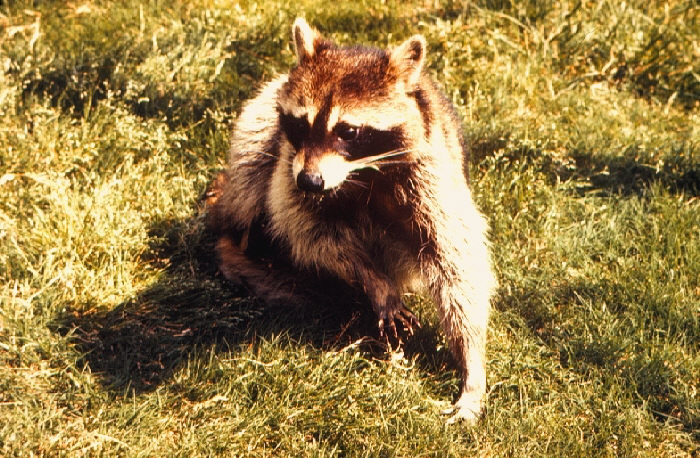Baylisascaris procyonis, also known as the raccoon roundworm, is the most common and widespread cause of clinical larva migrans in animals. It is a ubiquitous roundworm infection of raccoons (Procyon lotor) and is emerging as an important helminthic zoonosis, primarily in young children.

B. procyonis roundworms can cause potentially fatal neural larva migrans in many species, including humans. However, the clinical spectrum of baylisascariasis is not completely understood, according to researchers in a new study published in the CDC journal, Emerging Infectious Diseases.
Wildlife rehabilitators may represent a population at risk for subclinical baylisascariasis due to frequent contact with raccoons and their feces, which may contain infectious larvated B. procyonis eggs.
During 2012–2015, serum samples were collected and analyzed for B. procyonis IgG using a recombinant B. procyonis repeat antigen 1 protein Western blot. A questionnaire was also administered to determine current involvement in rehabilitation activities.
Nine out of 10 of the 347 participants reported current involvement in rehabilitation activities.
Twenty-four, or 7 percent of participants tested positive for B. procyonis antibodies.
Based on their findings, researchers suggest that exposure to B. procyonis may occur without clinical disease. See study for details to include complete data and limitations.
Related:
- The little known, but very dangerous raccoon roundworm
- Michael J. Yabsley, MS, PhD, Associate Professor, University of Georgia College of Veterinary Medicine discusses Baylisascaris procyonis in radio interview
- Raccoon roundworm: CDC describes seven recent cases, all survivors
- Raccoon roundworm: Pyrantel pamoate/marshmallow mix shows promise in reducing Baylisascaris prevalence


The rehab employees and volunteers I work with are absolutely foolish in their lack of precaution with these animals. One employee has tested positive for subclinical Baylisascaris, yet nothing has changed.
Anne–As a raccoon rehabber I am curious what you mean about being foolish? Do they give the raccoons in their care Pyrantel on a regular basis? That is what MOST raccoon rehabbers do.
Anne–As a raccoon rehabber I am curious what you mean about them being foolish? Most rehabbers treat their raccoons on a regular basis with Pyrantel. If they aren’t doing this then yes they are being foolish.
I’m a raccoon rehabber, and I got tested and came out neg. I also worm my raccoons on a regular basis.